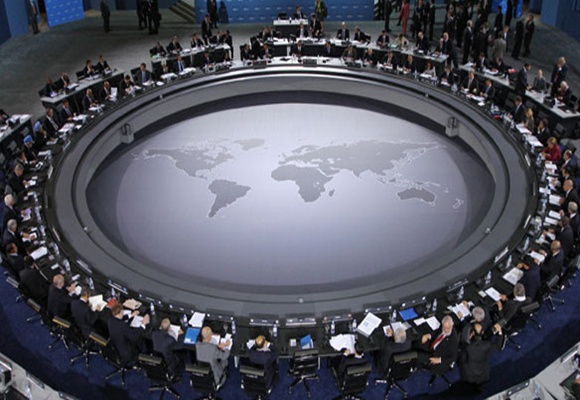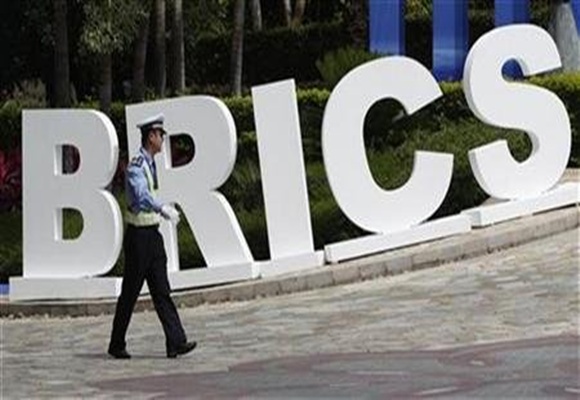 | « Back to article | Print this article |
How G5 power can revive emerging economies
Brazil, China, India, Mexico and South Africa are still a logical grouping, says Shyam Saran.
When the Group of 20, or G20, was formed in the aftermath of the global financial and economic crisis of 2008, it was already clear that an effective response to the challenges posed by globalisation required a co-ordinated, collaborative response from both the advanced, industrialised economies and major emerging market economies.
When the first G20 summit was convened by the United States in Washington in September 2008, it became clear that the old G8 global “steering committee” of the world’s most advanced economies could no longer serve as the pre-eminent forum for managing the global economy.
In fact, the G20 proved to be a most effective platform for crisis management, through co-ordinated policy measures such as the adoption of fiscal stimulus measures, the maintenance of the consensus on an open trade and investment regime, and the initiation of work on a number of structural reforms, particularly in the banking sector.
At the third G20 summit, in Pittsburgh in September 2009, the leaders agreed that the G20 would henceforth serve as “the premier forum for international economic co-operation”.
Click NEXT to read more...
How G5 power can revive emerging economies
At that time, there was a fairly widespread assumption, actively encouraged by the US, that the G8 had become somewhat redundant and could even be wound up.
However, Canada, Japan and Italy argued strongly in favour of maintaining the G8 as a forum where advanced, industrial economies could continue to consult with each other on matters of mutual interest, particularly political and development issues.
In contrast to the decision taken to persevere with the G8, the newly institutionalised G5, comprising Brazil, China, India, Mexico and South Africa, decided to disband before the convening of the G20 summit in Toronto in June 2010.
The reasons were that the G5, which took shape as “outreach” countries, meeting on the sidelines of the G8 summits from 2005 (the G8 G5 summit at Gleneagles) to 2009 (the G8 G5 summit at L’Aquila), was now an equal participant in the G20.
Click NEXT to read more...
How G5 power can revive emerging economies
There was, therefore, no reason to persist with an “outreach” group. Furthermore, since the G5 was relevant in the context of enabling a platform for the advanced, industrial economies and the major emerging economies to interact and consult with one another, this was already available in the G20 process.
In retrospect, it would appear that the G5 countries were somewhat hasty in disbanding their grouping.
They were influenced by the group’s genesis as “outreach” countries’ meeting on the sidelines of the G8 summits upon invitation. Perhaps there was an association of the G5, with a “second class” status, vis-à-vis the traditional advanced economies.
However, they may have failed to realise the importance and influential role of the group as an entity in its own right rather than as a mere appendage of the G8 process. By the time the G8 G5 summit took place in L’Aquila in 2009, the G5 countries were meeting independently and issuing summit statements covering issues of the day.
Click NEXT to read more...
How G5 power can revive emerging economies
A consultative process at the official level had also been established to enable consensus positions to be formulated on such issues in advance of the meeting of leaders.
There was no reason why the G5 could not have continued to meet independently of the G8 or the G20 process. As a forum of the most important emerging economies, it had begun to acquire a certain standing and role in the global governance architecture.
Since January 2010, when a decision was taken to disband the G5, the G8 has continued with its annual summits. With the immediate crisis in the global economy receding and/or changing character, the role of the G20 has been diminishing.
It proved to be a good crisis manager, but it has not lived up to its expectations of becoming the “premier forum for international economic co-operation”. In matters relating to monetary, financial and fiscal policies, we have witnessed a steady reversion to unilateral decision making.
Click NEXT to read more...
How G5 power can revive emerging economies
In global trade, the pursuit of the Trans-Pacific Partnership and the Transatlantic Trade and Investment Partnership threatens to undermine a rule-based multilateral trade regime under the World Trade Organisation.
The quantitative easing programme unleashed by the US, and now by Japan, has confronted developing countries with volatile capital movements. Even a hint that such massive injections of liquidity may be retired in the near future is leading to a sudden and significant outflow of portfolio investments from developing economies. The G20 has been mostly a silent witness to these new challenges threatening the global economy.
Since 2011, there has been a visible revival in the G8’s role. While the G20 has been mostly quiescent, the G8 countries have strengthened and consolidated their role in dealing with issues that confront them as advanced economies.
Russia is an outlier in the group and its role is now marginal - sometimes by choice, sometimes by compulsion. In the G20, the G8 minus Russia will begin to play an enhanced role as an influential group.
Click NEXT to read more...
How G5 power can revive emerging economies
In contrast, the BRICS group - Brazil, Russia, India, China and South Africa - has less in common precisely because Russia is an outlier here as well. In contrast, the G5 had begun to acquire a certain distinct personality and a comfort level with members working with one another in the 2005-2010 period.
Given the reality of the G8 revival and the lack of a strong, coherent and effective countervailing coalition within both the G20 and other fora, the revival of the G5 could help safeguard the interests of the emerging economies in an increasingly polarised global economic order.
The BRICS group may stay, but the G5 could be a more effective and influential instrument in the service of emerging market economies.
The writer, a former foreign secretary, is currently chairman of the Research and Information System for Developing Countries and a senior fellow at the Centre for Policy Research, New Delhi.






